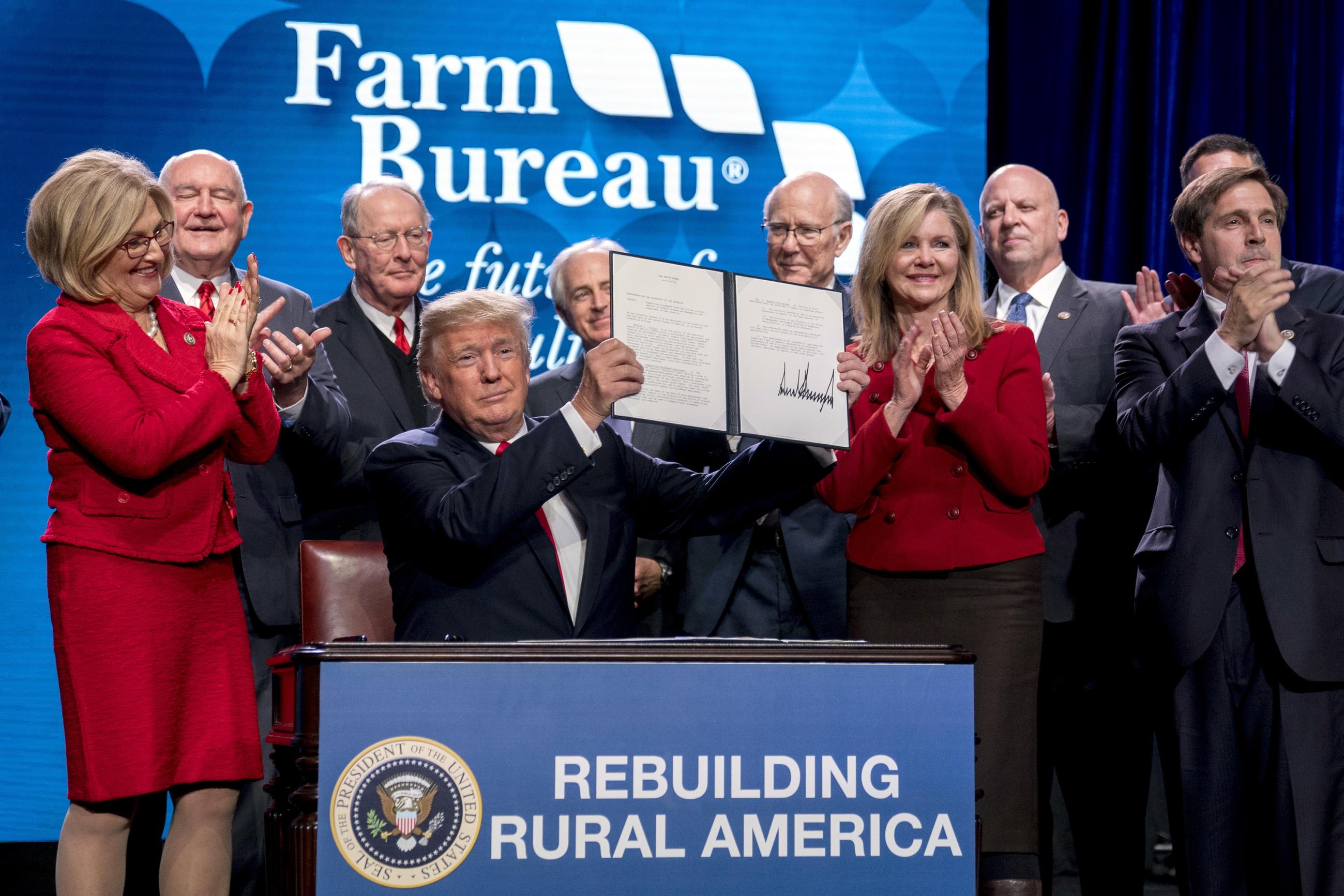Backers of the Make America Healthy Again movement have an issue with a potential food-standards bill that could emerge from the office of one of the movement’s biggest backers.
Sen. Roger Marshall, chair of the Senate MAHA caucus, is reportedly set to introduce a bill that would preempt state laws regulating food additives, as a number of legislatures introduce or pass their own laws banning certain substances. State lawmakers and some prominent members of the MAHA movement object to the idea of preemption, asserting that states should have the authority to regulate additives as they see fit.
In a letter sent to Marshall, state lawmakers around the country raised concerns about the possible measure. They are urging the Kansas Republican to “preserve the power and autonomy of states to protect our consumers and preserve the longstanding collaborative partnership between the federal government and our states.”
“All of the ingredients addressed by these state laws and bills have already been addressed by our trading partners in other nations ensuring that alternative formulations already exist and thus these state laws will not create an economic burden to the industry,” the letter reads. “We are grateful that Congress may consider food safety legislation. As you do so, we urge you to reject efforts to limit the power of states to protect our consumers.”
While the finalized bill has yet to be introduced, reports about it have exposed cracks in MAHA world.
The food industry is struggling to navigate a fractured and rapidly evolving policy landscape amid a cascade of state bills to clamp down on the additives added to their products. Food-industry groups have been calling for the federal government to step in to set a uniform standard for ingredient safety. But the possibility of capitulating to industry has provoked backlash from many in the MAHA base, who argue that the food industry is responsible for fueling what they call a chronic-disease crisis.
“I would hope that there wouldn't be preemption, because ... it would mean that the people of these individual states don't have the ability to choose what they want for them,” Jeff Hutt, a spokesperson for the Make America Healthy Again PAC, told National Journal. “And then we as the federal government would be siding with large corporations and large manufacturers on what was easiest for them to produce, not what individuals and states really wanted.”
A spokesperson for Marshall’s office declined to comment on the criticism from state lawmakers but told National Journal the bill would be undergoing changes. The spokesperson did not offer specifics.
The squabble intensified as a conservative group representing the food industry is pushing for a federal regulation to untangle the web of state laws. Americans for Ingredient Transparency, a new coalition of food organizations and companies, is pushing for a national standard regulating ingredients and food-labeling. More specifically, the group is calling for legislation to establish the Food and Drug Administration as the sole entity establishing regulations on the marketing and sale of foods, beverages, and over-the-counter products, rather than states pushing their own regulations. It is also calling for any federal regulation to be informed by peer-reviewed research and adhere to established scientific standards.
“It is a simple concept to understand—Americans want to know that the ingredients in the products they’re buying for their families are safe. This should not be a difficult standard to meet,” said AFIT senior adviser Andy Koenig, who served in the first Trump administration. “Unfortunately, states are now implementing their own patchwork of contradictory ingredient rules that have caused widespread confusion among consumers. President Trump and his administration are well-suited to make these determinations.”
The group, however, represents companies that the MAHA movement is looking to rein in, such as the American Beverage Association, General Mills, Kraft Heinz, and Nestlé.
“New front group ‘Americans for Ingredient Transparency’ with every major BIG FOOD company being a member has formed to stop all state action on food safety & undermine Governors who have courageously signed bills to reform the food industry,” Vani Hari, a MAHA influencer and vocal critic of the food industry, wrote on X. “When Big Food feels threatened by states demanding cleaner food, they form fake 'grassroots' groups to fight back. We see you.”
Marshall’s spokesperson also confirmed that his office held a meeting with AFIT back in September, along with other groups—but emphasized that AFIT had “no part in the writing or influencing of this bill.”
Still, those in the food industry stress that the current policy landscape is a minefield for companies to navigate, complicating supply chains and creating confusion among consumers.
“If one state is setting the rules, then it becomes this just terrible patchwork of companies trying to navigate what they’re allowed to sell, when they’re allowed to sell it, what the deadlines are,” an industry source who requested anonymity told National Journal. “We don’t formulate for one state. That’s not the way our supply chains work.”
Food additives are subject to review and approval by the FDA before a product heads to the market—unless the substance falls under the “Generally Recognized As Safe” category. However, a number of critics have argued the GRAS designation serves as a loophole for food companies to introduce new ingredients to the market with little review from the FDA. Health and Human Services Secretary Robert F. Kennedy Jr. announced in March that the FDA would look to tighten the designation. AFIT has also called for GRAS reform.
Marshall, who confirmed to National Journal that the bill was in the works back in October, noted that he’s looking to find a Democratic co-lead for the measure. He said he intends to attach it to a possible vehicle, such as the farm bill, once the government opens back up. His office said it is “exploring all possible avenues to get this bill across the finish line.”
While the Kansas Republican didn’t go into details about the bill’s language, Civil Eats reported that the measure would require companies to file paperwork alerting regulators to new additives being added to a product, though it wouldn’t require the additives go through an approval process. The bill would also include provisions related to a plan FDA proposed last year to strengthen the process for reviewing food chemicals on the market and those that fall under the GRAS loophole.
In May, the FDA announced it would launch a more robust, systematic review process for food chemicals already on the market—and in August it provided an updated list of chemicals under review. They include butylated hydroxyanisole (BHA), butylated hydroxytoluene (BHT), azodicarbonamide, a series of food dyes, and opiate alkaloids in poppy seeds. Most of these chemicals have been slotted under the GRAS designation, but recent evidence has associated some of them with adverse health effects, such as cancer.










